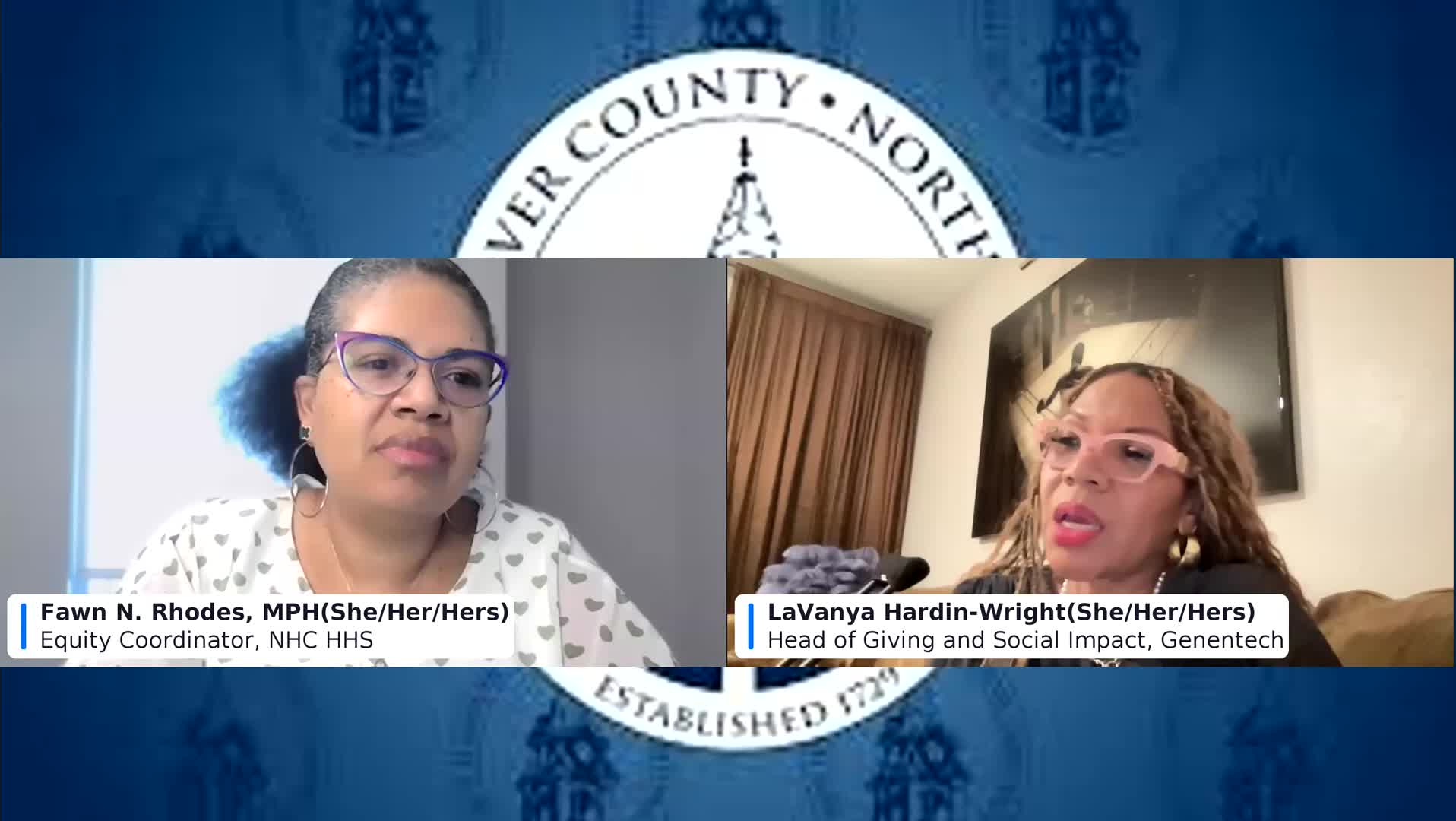Genentech shifts corporate giving toward community‑driven health equity, exec says
Get AI-powered insights, summaries, and transcripts
Subscribe
Summary
Genentech now favors site‑focused, multiyear grants and community co‑creation to address health disparities, the company’s head of giving told a New Hanover County webinar. Programs such as FutureLab aim to build local STEM pipelines while quarterly check‑ins and convening funders are used to measure and sustain impact.
Genentech is retooling corporate philanthropy to prioritize measurable, community‑driven health equity work rather than one‑off grants, Lavanya Harden Wright, head of giving and social impact at Genentech, said during a New Hanover County webinar. Wright said the company is aligning philanthropy with both business priorities and local needs, tailoring investments by site and committing to longer funding horizons when required.
Wright said Genentech’s site giving model looks at the full patient journey and seeks to remove barriers to care through partnerships, data and policy engagement. “If health equity is your ministry, then I’m a part of your ministry,” Wright said, describing the moral and business rationale for the shift. She argued that some grants need to be multiyear — “3 years because that’s how long it’s gonna take for us to gather the data to truly have an impact in that community” — and that grant design should consider who will be included or excluded by eligibility rules.
The company uses several operational practices to support this approach. Wright described quarterly check‑ins with grantees to measure progress, the practice of convening grantees and other funders to form coalitions, and a willingness to keep a funder’s name off a grant if public branding would undermine trust with end users. She also noted that Genentech staff who manage site giving meet with local leaders — mayors, policymakers and academic partners — to understand needs before making investments.
Wright gave concrete program examples. FutureLab, a STEM exposure program at Genentech’s South San Francisco site, brings Title I students to campus for tutoring, lab exposure and career conversations; its success led to FutureLab Plus, a “STEM in a box” curriculum deployed where Genentech has no local campus. Wright said such programs aim to develop a future workforce and expand opportunity in communities that might otherwise lack STEM exposure.
On policy and cross‑sector work, Wright said industry should not treat other life‑science companies as competitors when community benefit is at stake. She recommended pooled funding and collective approaches — for example, several funders jointly supporting a grantee — and said companies can use philanthropic levers to inform policy discussions, including white papers and convenings with policymakers. Wright cited recent participation in a Congressional Black Caucus panel where industry, academia and elected officials discussed topics including artificial intelligence and patient impact.
Wright also urged funders to accept direct feedback from communities. Recounting a Chicago summit, she said community groups told Genentech: “You’ve been asking us questions and we’ve been answering — now put your money where your mouth is.” She took the comment as a call to remove institutional ego, act on feedback and maintain ongoing relationships rather than treating grants as one‑time transactions.
On clinical research, Wright encouraged greater participation by people of color while acknowledging historical abuses that have driven mistrust. “Don’t believe all the myths,” she said. Wright advised prospective participants to ask questions, do their own research and consider trials as a possible avenue to access treatments and to help ensure therapies are effective across diverse populations.
The conversation took place during the final Common Thread webinar hosted under New Hanover County; the series will continue in a rebranded form. Wright described her own path into philanthropy and life sciences — she has worked at Genentech nearly 20 years and has been in her current role for about 17 months — and framed corporate giving as an opportunity to invest in sustainable, locally relevant change.
